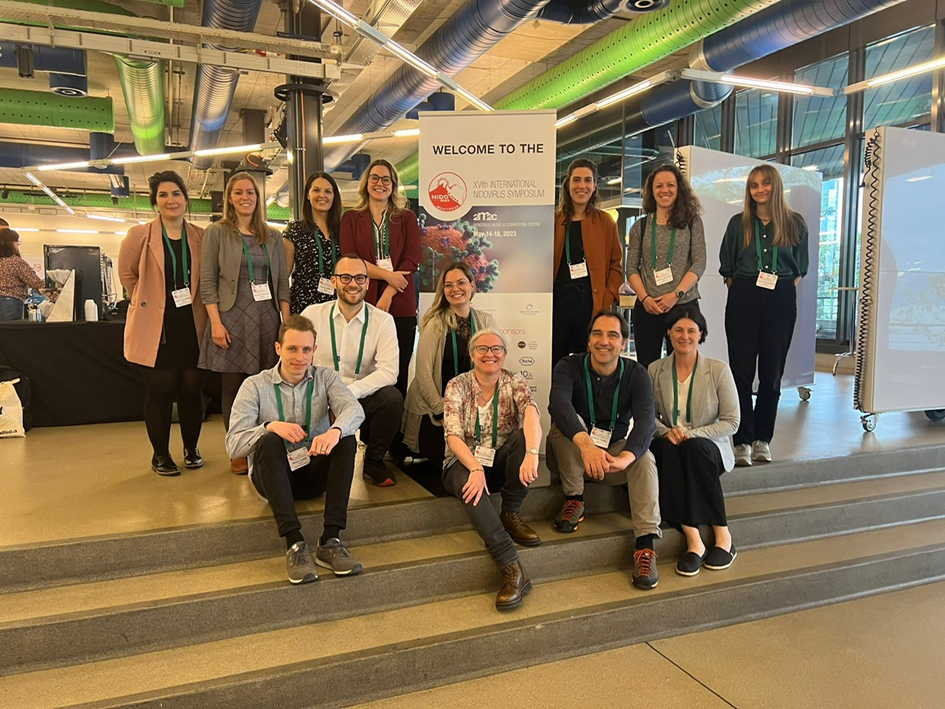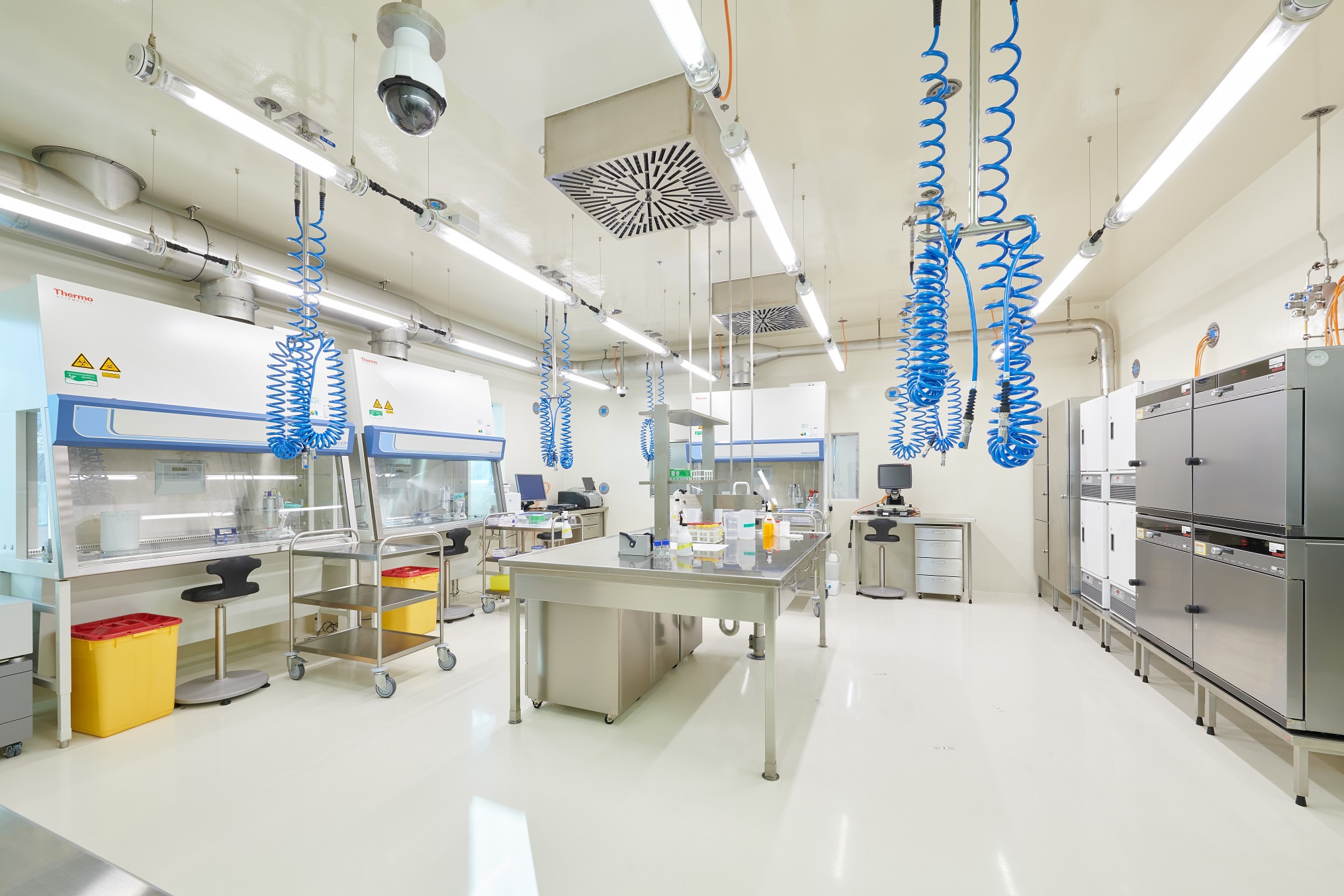Partners
The consortium partners are among the leaders in Europe in their respective professional fields or industries. These research institutions, universities, organizations, and companies have the complementary knowledge, experience, and infrastructure required for the successful implementation of the project.

LUMC
The Molecular Virology Laboratory of the Center for Infectious Diseases (LUCID) at Leiden University Medical Center (LUMC) in the Netherlands is specialized in studying the molecular biology of RNA virus replication. This expertise is used to support the development of novel antiviral strategies, in particular for corona-, alpha-, and flaviviruses. LUMC coordinates the PANVIPREP consortium and has previously coordinated similar European research projects on antiviral drug development, like the pandemic response project SCORE (www.score-cov.eu). Within the PANVIPREP consortium, LUMC leads the management and dissemination work packages with Professor Eric Snijder as coordinator, who is assisted by project managers Danijela Koppers-Lalic, Linda Ouwerkerk, and Ed Schmidt. LUMC also contributes to work packages 2 and 3, and to a number of the miniprojects of work package 4. As such, research technicians Brenda Bontes and Patrick Wanningen and post-doc Clarisse Salgado are engaged in hit validation, drug target discovery, and mode-of-action studies, studies performed under the supervision of principal investigators Sebe Myeni, Martijn van Hemert, and Eric Snijder.
AMU
AMU leads WP4 and drive the structural and functional viral target characterisation essential for rapidly assessing inhibition properties in hit-to-lead development. AMU will manage data in an Enzyme BioBank of general interest beyond the consortium. AMU will organise a list and repository of prioritised viral targets to determine MoA of hits from internal and external sources.
KU Leuven
The laboratory of virology www.antivirals.be has a long-standing expertise in antiviral drug discovery, in particular against neglected and emerging viruses. The team’s expertise ranges from high-throughput phenotypic screens, hit/lead optimization, and reverse genetics, to identifying molecular mechanisms of action and assessing efficacy in animal infection models.
CD3 (CISTIM)
The Centre for Drug Design and Discovery (CD3) is a drug discovery centre and investment fund of the University of Leuven, Belgium (KU Leuven) driving the translation of innovative basic research to the clinic. As investment fund, CD3 invests in drug discovery projects as well as in spin-off companies and biotechs, while as drug discovery centre, it complements investments with an experienced drug discovery team and state-of-the-art infrastructure. The cornerstone of CD3’s activities are hand-in-hand collaborations with academic research groups and biotech or pharma partners, always aimed at discovering and developing new medicines. CD3 successfully developed multiple innovative drugs currently being evaluated in the clinic for a variety of medical needs including in the field of virology.
UU
The Virology section at the Faculty of veterinary Medicine at Utrecht University (UU) studies RNA viruses that infect humans and animals, aiming to translate this knowledge into new methods to prevent or treat viral infections. As a group, we study corona-, influenza-, paramyxo- and picornaviruses. Within the PANVIPREP consortium, UU contributes its proprietary knowledge on enteroviruses. UU has participated in many international research projects on antiviral drug development and coordinated two European Training Networks on this topic (EUVIRNA and ANTIVIRALS). Our PANVIPREP team consists of Professor Frank van Kuppeveld, co-Principal Investigator dr. Daniel Hurdiss, Dr. Robin Veenstra and Hatice Ozhan. We will contribute our expertise in molecular and cellular virology, biochemistry, and advanced microscopy (incl cryo-EM) to develop novel inhibitors against emerging enteroviruses (e.g. EV-A71 and EV-D68).
IVI
 The Institute of Virology and Immunology (IVI) is Switzerland’s reference laboratory for the diagnosis and research of highly infectious epizootic diseases, including viral zoonoses.
The Institute of Virology and Immunology (IVI) is Switzerland’s reference laboratory for the diagnosis and research of highly infectious epizootic diseases, including viral zoonoses.
The IVI strives to develop solutions to combat and control viral diseases, for instance African swine fever, influenza, foot-and-mouth disease, as well as those caused by diverse flaviviruses, coronaviruses and other emerging viruses. Operating across two sites in Bern and Mittelhäusern, IVI employs approximately 120 staff, who play a crucial role in international viral research, One Health and Pandemic preparedness. Within this framework, two IVI divisions contribute to the PanViPrep project. The team of Volker Thiel specialise in respiratory and enteric viral infections and zoonoses. Supported by Nadine Ebert, Bettina Trüeb and Lisa Thomann, the team provides in vitro assays, as well as attenuated and reporter viruses to facilitate the hit-to-lead discovery and testing of novel antiviral compounds. Lisa is also Work Package Leader responsible for Animal Welfare and Ethics. The team of Charaf Benarafa with Melanie Brügger are experts in molecular, cellular, and in vivo pathways of innate immune responses in infectious and inflammatory disease. Their contribution to PanViPrep includes the use of in vivo animal models for testing of efficacy of antiviral candidates. Through these collaborative and cutting-edge research efforts, IVI continues to play a vital role in safeguarding animal and human health against emerging viral threats.
To read more about the IVI 👉 bit.ly/3G8B333
Uzl
UzL provides structure-based drug design (SBDD) to identify potential inhibitors for target proteases using methods implemented in structural biology like protein crystallography, cryoEM and fragment screening design. Dr. Haifa El Kilani is the Group Leader and contact person for PANVIPREP.
HZI
The Department of Chemical Biology, comprising the PK/PD unit, at the Helmholtz Centre for Infection Research (HZI) in Germany deals with innovative drug design and synthesis (including PROTACs), mode of action studies of anti-infectives, and the understanding of their pharmacokinetic (PK)/pharmacodynamics (PD) relationships. By this, HZI contributes to finding new strategies to fight viral infections and helps to advance compounds towards clinical application. HZI is a partner of PANVIPREP consortium and has previously worked in similar international research projects on antiviral drug development, such as the pandemic response project SCORE (www.score-cov.eu). Within the PANVIPREP consortium, Mark Brönstrup and Katharina Rox serve as Principal Investigators and are responsible for chemical synthesis, characterization of PROTACs as well as PK/PD of small molecules.
Janssen
Janssen provides deprioritised hits explored in the CARE project. As a partner in AI/ML model development, Janssen will work on hit enrichment. Janssen can carry out primary cell experiments (ALI cultures) and in vivo hamster studies. As a commercial partner, Janssen will be key in driving post-project drug development.
Spiez Laboratory (VBS-DDPS)

Spiez Laboratory Swiss Federal Office for Civil Protection:
The Swiss Federal Office for Civil Protection (FOCP) coordinates protection against various disasters and emergencies. Spiez Laboratory is the Federal Institute for NBC-Protection, i.e. protection against nuclear, biological and chemical (NBC) threats and dangers. It contributes to prevention efforts and the preparation of protective measures, as well as detection and protection against contamination and infection. Virological research activities are focused on pandemic preparedness as reflected in the participation in projects and consortia focusing on vaccinology (EBOVAC, EBOPLUS) and antiviral testing (PAD) against zoonotic and/or emerging viruses. Dr. Olivier Engler and Dr. Hulda R. Jonsdottir serve as principal investigators, supported by Dr. Roland Züst and Damian Jandrasits. As a member of PANVIPREP, Spiez Laboratory will conduct antiviral testing in maximum containment (BSL-4), against highly pathogenic viruses.
UCTP
UCTP provides its expertise in computer-aided drug design for the identification of new antiviral hits, as well as supporting the hit-to-lead and lead optimisation stages. UCTP will also support medicinal chemistry and synthesising novel antivirals, including PROTAC derivatives.
CSIC

PANVIPREP member profile: The group “Nucleoside and analogues” at the Instituto de Química Médica (IQM-CSIC)
The group “Nucleoside and analogues” at the Instituto de Química Médica (IQM) belonging to the Spanish National Research Council (CSIC) in Madrid (Spain) provides expertise in medicinal chemistry and contributes to PANVIPREP through the design, synthesis and optimization of small molecules as antivirals, participating in WP3 and 4. The group has previously collaborated with different PANVIPREP partners in the identification and optimization of several first-in-class antivirals. The principal investigator is María-Jesús Pérez-Pérez, assisted by other senior team members: María-José Camarasa, Eva-María Priego, Ana San-Félix, Ernesto Quesada and Sonia de Castro. Ana González-Paredes, also a senior scientist at the IQM belonging to the Nanomedicine and Imaging group, is responsible of nanoparticle formulations of the antivirals within PANVIPREP.
The Laboratory of Structural Biology at the University of South Bohemia (USB)
The Laboratory of Structural Biology at the University of South Bohemia (USB), led by Prof. Ivana Kutá Smatanová, specializes in antiviral research, focusing on structural analysis of viral proteases (e.g., EV-D68 3Cpro and EV-A71/EV-D68 2Apro) within the PANVIPREP consortium. Previously participating in the Makrokomplex project, the lab employs techniques like cryo-EM, X-ray crystallography, and single-molecule spectroscopy to study viral complexes. As an international partner, USB contributes expertise in structural biology, biochemical assays, and antiviral drug development, advancing innovative solutions against infectious diseases.
Zafiro
Zafiro Business Solutions Ltd. is a European consulting firm with extensive experience in managing large-scale projects and coordinating complex EU-financed research and innovation (R&I) activities, particularly under Horizon Europe. As a consortium member in the PANVIPREP project, Zafiro contributes to the execution of the Data Management Plan, leads internal and external communications, and disseminates project information to the professional community.
EPITHELIX
Epithelix (www.epithelix.com) is a leader for in vitro assessment of drug efficacy and toxicity of inhaled chemicals or mixtures on human respiratory tract. Epithelix has developed unique state of the art 3D in vitro human airway tissues (MucilAir™, SmallAir™ and AlveolAir™) modelling several anatomical regions of the respiratory tract and offers alternatives to animal testing services for studying airway pathologies like Asthma, Cystic Fibrosis, Pulmonary Fibrosis, Chronic Obstructive Pulmonary Diseases, Bacterial and Viral infections. Within the Panviprep project. Epithelix is active in WP3 and WP4. Dr. Ghislaine Arib, Rosy Bonfante and Dr. Samuel Constant contribute to in vitro antiviral efficacy evaluation of lead compounds selected by the consortium.
NUVISAN
Nuvisan is a contract research and development organization (CRO/CDMO) with sites across Germany and France and a strong foundation in pharmaceutical science. We collaborate on drug discovery and development projects spanning from early target identification to the delivery of innovative medicines. Our Life Science Chemistry team in Berlin specializes in drug design, synthesis, and microbiological chemistry. Nuvisan has been a member of the IMI CARE consortium (www.imi-care.eu), Europe’s largest research initiative addressing the challenges of COVID-19, working alongside leading experts from pharmaceutical companies and research institutions to advance antiviral development. As a member of the PanViPrep consortium, Nuvisan will contribute through characterization of novel antiviral compounds by investigating their mode of action and identifying new viral targets. Our scientists, Nico Bräuer and Luis Bering, bring extensive experience in medicinal chemistry and drug discovery, strengthening the consortium’s efforts toward future pandemic preparedness.